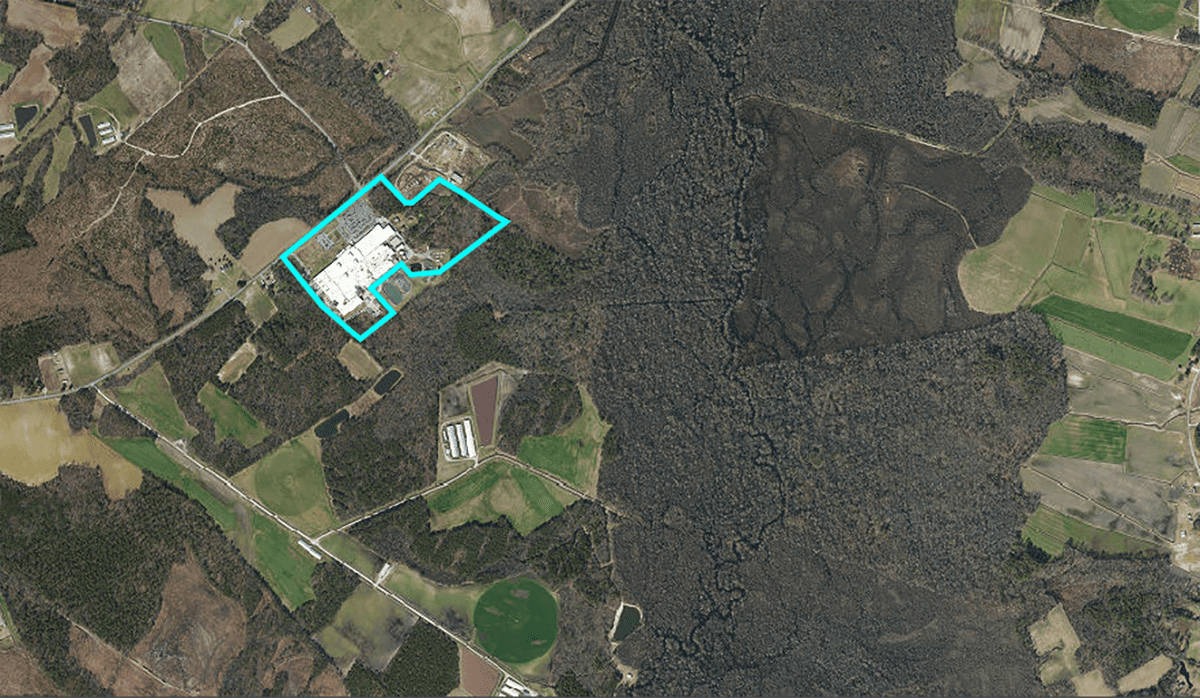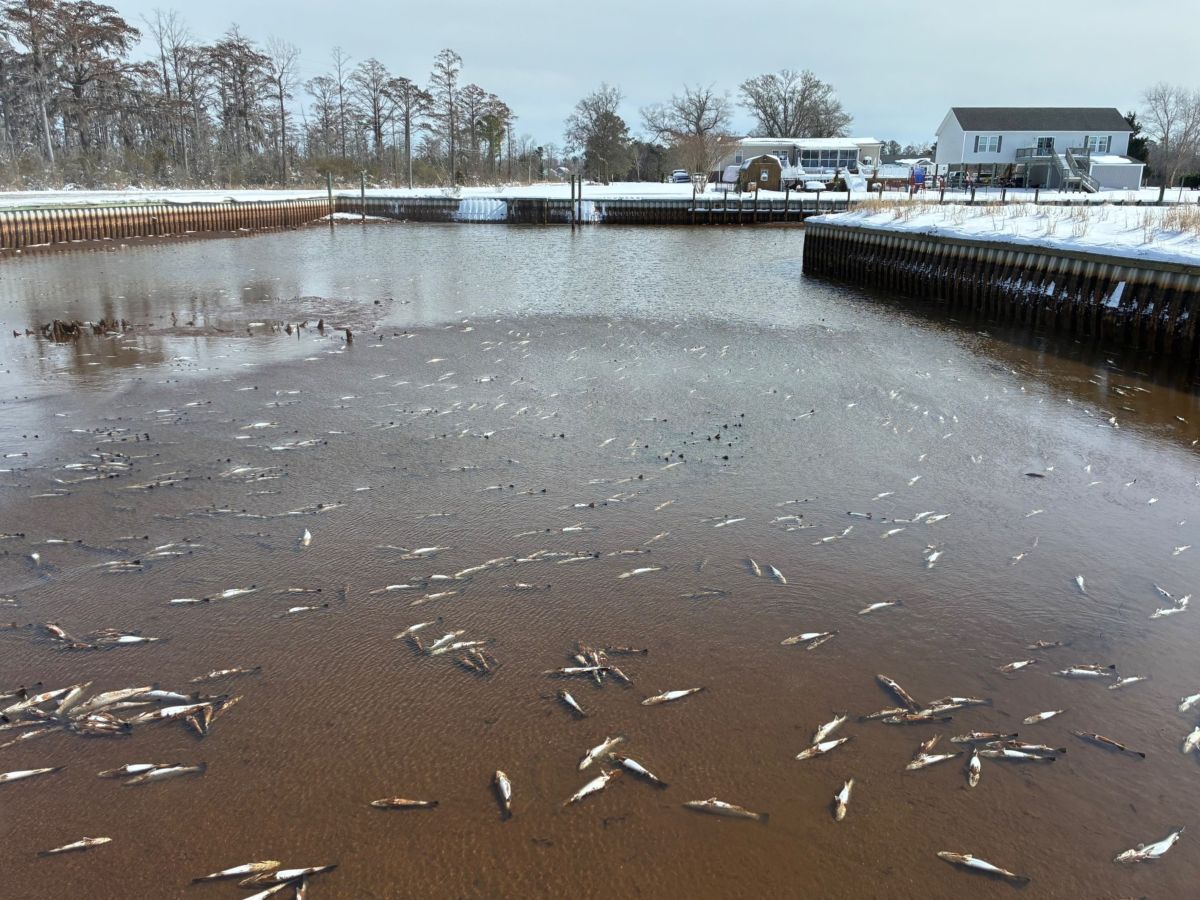
A manufacturing plant in Duplin County would have to monitor, but not limit, chemical compounds it discharges from its wastewater treatment system into the Northeast Cape Fear River under the terms of a draft permit being reviewed by state and federal agencies.
Automotive textile and technology manufacturer Lear Corp.’s draft National Pollutant Discharge Eliminations System, or NPDES, permit renewal includes a special condition that the company monitor for per- and polyfluoroalkyl, or PFAS, emitted from its treated industrial wastewater into the river quarterly.
Supporter Spotlight
The N.C. Department of Environmental Quality’s Division of Water Resources also would require the company to monitor its outtake of 1,4-dioxane, which is primarily used in as a solvent in manufacturing.
The state’s proposal to let the company monitor, and not curb, man-made chemicals the plant discharges is a slap in the face of residents already living in and downstream of an area where water quality is affected by a heavy concentration of large hog and poultry operations, opponents say.
The U.S. Environmental Protection Agency sent a letter to the water resources division’s water quality permitting section chief on March 5, one month after the draft permit was received by the agency, notifying the state it was invoking a 60-day extension to review the permit.
“The EPA will complete the review of this permit as expeditiously as possible prior to the end of the 90-day period on May 6, 2024,” the letter from EPA Region 4’s Water Quality Branch Acting Manager Christopher Thomas states.
DEQ had received by early March more than 400 emails calling for the state to require Lears cap the amount of PFAS it releases into the river, Cape Fear River Watch Executive Director Dana Sargent said.
Supporter Spotlight
The state agency has since pushed back its public comment period deadline on the draft permit to March 28.
Lear declined to answer specific questions about its draft permit application, instead offering an emailed statement, saying in part that the company is working with DEQ on a permit renewal “that adheres strictly to state regulatory guidelines and standards governing the use and disposal of per- and polyfluoroalkyl substances (PFAS).”
“We conduct rigorous monitoring of our wastewater discharge to ensure compliance with the NCDEQ regulatory requirements and have reformulated the majority of our products to eliminate the use of PFAS,” the statement continues. “We are working to transition our remaining products to a PFAS-free solution as soon as reasonably practical. We are committed to continuing to work with NCDEQ and to take appropriate environmental stewardship actions. Our highest priorities are the health and safety of people, local communities, and the environment.”
The state issued Lear’s current permit in 2018, about a year after news broke that the Cape Fear River, the drinking water source for tens of thousands of people, had been the dumping site of a host of PFAS emitted from the Chemours Co.’s Fayetteville Works facility for decades.
Under a 2019 consent order, the company had to add to its Bladen County plant various controllers, including a thermal oxidizer to trap PFAS from being released into the air and an underground retainer wall to prevent PFAS-contaminated groundwater from getting into the river.
There are well over 10,000 different PFAS being used in the manufacturing of a wide-range of consumer goods. PFAS are used in the making of everything from stain-resistant carpets and waterproof gear to nonstick cookware and disposable food containers.
Potential health effects from exposure to PFAS include changes in cholesterol, low birth weight in newborns, changes in human immune response, increased risk of high blood pressure in pregnant women and increased risk of certain cancers such as kidney and testicular cancer.
The technology Chemours is using to reduce the amount of PFAS it discharges to near non-detectable levels prove that other manufacturers can and should do the same, Sargent said.
“The DEQ is required to enforce these on these other industrial polluters and they’re not,” she said. “This is a federal law. This is the Clean Water Act. DEQ has the full authority to regulate this facility and limit their PFAS dischargers. It’s pretty clear from where we sit it’s obviously ridiculous that DEQ would be allowing any known PFAS dischargers to continue to discharge after all we’ve learned over the last seven years. They should be sticking to their mission, protecting human health and the environment.”
Under the draft permit, Lear would be required to implement the U.S. Environmental Protection Agency’s guidelines on PFAS and 1,4-dioxane, which the agency has classified as a likely human carcinogen.
The EPA’s final rule in a proposal to set limits on six PFAS is expected to be released any day now. The proposed rule limits the maximum allowable amount of a combination of four chemical compounds, including GenX, a PFAS specific to Chemours’ plant in Bladen County.
EPA also proposes to set maximum contaminant levels on what have been two of the most used PFAS compounds – perfluorooctanoic acid, or PFOA, and Perfluorooctane sulfonic acid, or PFOS – at 4 parts per trillion.
Public comments may be emailed with the subject line “Lear Corp.” to publiccomments@deq.nc.gov.
Once the public comment period ends, Division of Water Resources Director Richard Rogers will decide whether to hold a public hearing. A hearing would be held following a 30-day public notice.







